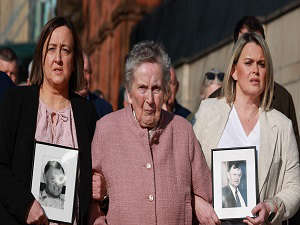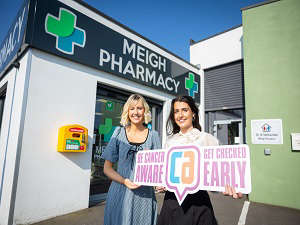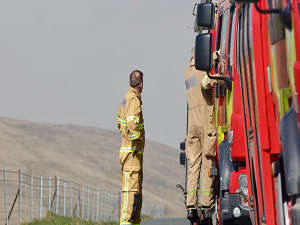
By Cate McCurry, PA
Lifting restrictions on people's movements will happen in a "slow and controlled manner", the chairman of the Covid-19 expert advisory group has said.
Cillian De Gascun said some businesses might open at a reduced capacity but society will not immediately return to how it was as restrictions will be removed gradually.
Speaking to RTE Radio One, Dr De Gascun said some non-essential workers may be able to return to their workplace, but he would not say which industries this could include.
He added: "When you start lifting restrictions, you do so slowly, and you need between two and four weeks to see the impact that those measures have had on the number of cases that you're seeing, the number of intensive care admissions and hospitalisations.
"Everything we want to do we have to try and do in a controlled manner and we're not going to release everything at once.
"Obviously, you could increase the number of people that might be able to go back to work.
"We're focusing very much at the moment on essential workers, so you might be able to broaden the scheme there for, say, some non-essential work.
"We're not going to return to the way things were, everything will still have to be measured.
"Any restrictions that will be lifted will still be lifted in a controlled way, so it won't be a sense that something that was closed completely today will be opened completely tomorrow.
"It will be a sense that they might open at a reduced capacity or something in that region."
Dr De Gascun said that before restrictions are lifted, the turnaround time for testing has to be shorted to within two to three days.
He said: "What we want to get to is a stage where, when somebody is referred, that they're being tested either the same day or next day and then they have the result, either the same day or next day, and then contact tracing can begin.
"So realistically, that process is still going to take two to three days from somebody being referred to having a result and contact tracing being commenced."
Currently, the HSE has capacity to carry out around 9,000 tests a day.
Dr De Gascun said the number of people being referred into the system has dropped off significantly.
That is expected to change when the case definition is broadened, allowing more people to be tested.
He said the National Public Health Emergency Team (NPHET) is focusing on nursing homes and will test every staff member and resident in residential facilities.
"Then at the end of that process we will broaden the case definition to try to make it more sensitive and ensure that we can track all of the circulating virus in the community," he added.
He said officials are intending to reach 100,000 tests a week before the restrictions are lifted.
"What we will want to do is be able to test contacts," he continued.
"What we would envisage being next week is sort of 12,000 to 13,000 tests and then the following week we'll go up to 15,000 or 16,000.
"It does need to build up because we're still waiting on new equipment to come on stream, to be delivered and to be validated."


 O’Neill writes to PM urging public inquiry into Sean Brown murder
O’Neill writes to PM urging public inquiry into Sean Brown murder
 Campaign to increase cancer awareness through pharmacies rolled out
Campaign to increase cancer awareness through pharmacies rolled out
 Concern over PSNI vehicles fleet, with 20% off road at worst point in 2023
Concern over PSNI vehicles fleet, with 20% off road at worst point in 2023
 Man released by police after Newry stabbing incident
Man released by police after Newry stabbing incident
 Firefighters tackle almost 150 wildfires across three days in Northern Ireland
Firefighters tackle almost 150 wildfires across three days in Northern Ireland